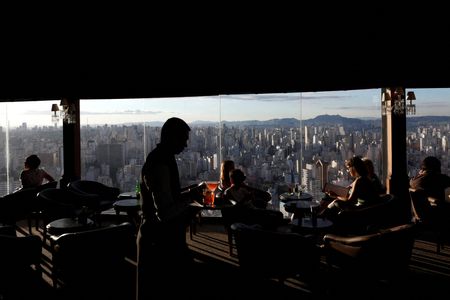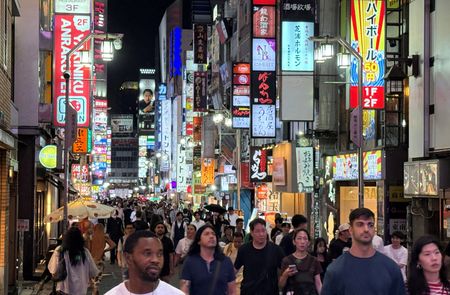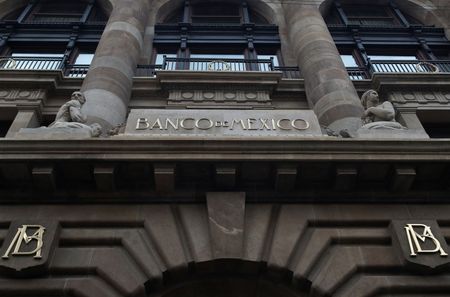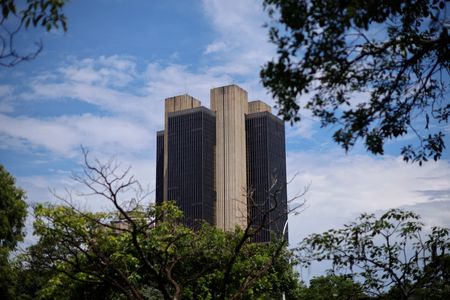SAO PAULO (Reuters) – Brazil’s IPCA-15 consumer price index posted in February its largest monthly rise in almost three years, official data showed on Tuesday, driving 12-month inflation to its highest since late 2023 as the central bank continues to tighten monetary policy.
Prices were up 1.23% in the month to mid-February, statistics agency IBGE said, up from 0.11% in the previous month.
Although landing below the 1.33% expected by economists in a Reuters poll, it was the highest overall reading since April 2022 and the highest for February since 2016, underscoring the challenges faced by the central bank to tame soaring prices.
Annual inflation hit 4.96%, up from 4.50% in January, the highest since October 2023.
Market expectations were for it to reach 5.08%.
Brazil’s central bank targets inflation at 3%, plus or minus 1.5 percentage points, and has been hiking interest rates aggressively as policymakers vow to bring consumer prices back to the official goal.
The bank seems all but certain to deliver a third consecutive 100-basis-point increase to the benchmark Selic rate in March, taking it to a more than eight-year high of 14.25% in its bid to curb inflation.
“February’s IPCA-15 data are unlikely to prompt Copom to deviate from its guidance for at least one more 100bp hike,” said Jason Tuvey of Capital Economics, also noting that fiscal concerns have not gone away.
Central bank director Nilton David last week had already reaffirmed the bank’s guidance to hike borrowing costs by a full percentage point next month, adding that the inflation scenario would worsen before getting better.
The bank has been facing a challenging landscape marked by unanchored inflation expectations for this year and the next, despite the more aggressive rate path through 2025.
The February price rise was mainly related to higher housing and education costs, according to IBGE.
One-time credits on household energy bills had driven electricity costs down in January, but their absence sent those prices soaring on a monthly basis in February, which is also marked by annual education price readjustments.
Elevated prices, especially of food, have been hurting President Luiz Inacio Lula da Silva’s popularity.
The leftist leader has vowed to bring food costs down, but says that inflation overall is under control.
(Reporting by Gabriel Araujo; Editing by Chizu Nomiyama)











